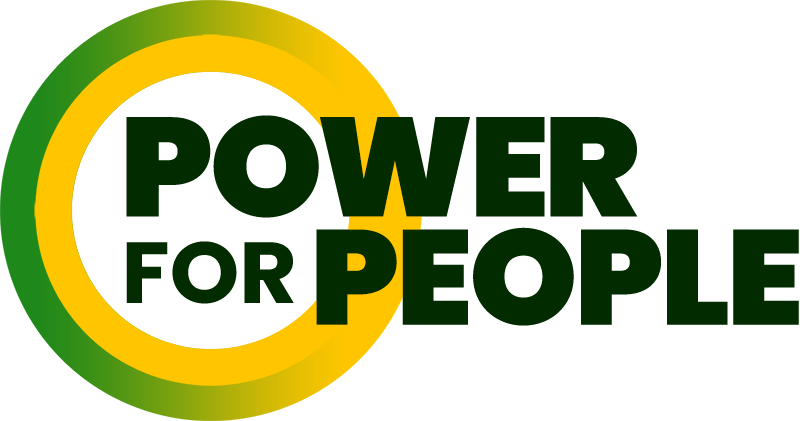Our Plan to See the Local Electricity Bill Made Law
Image courtesy of UK Parliament
Related Parliamentary Rules and Processes
Power for People has two aims. Firstly, to run campaigns that will accelerate the UK’s transition to 100% renewable energy so that we meet our national greenhouse gas emissions reduction targets. Secondly, to ensure that this transition benefits local communities.
Our Community Energy Revolution campaign is for the Local Electricity Bill – that we authored – to become law. If we succeed, the new Local Electricity Act would give the energy regulator, OFGEM, a duty to create a Right to Local Supply. The crucial element of this new right would be ensuring that new and existing community energy companies face setup and running costs proportionate to the scale of their business. This would allow them to be financially viable and thus unleash their potential in towns, cities and villages across the country.
Many people have asked us why the Bill was in Parliament last year but must now be ‘re-introduced’. The rest of this article is therefore about the Parliamentary processes and rules related to our campaign for the Bill to be made law.
Before the December 2019 general election, the Bill had been introduced in Parliament by Conservative MP, Jeremy Lefroy as a Presentation Bill. Such a Bill is presented to Parliament (hence the name) by a single MP and no time is given to it for debate, meaning it cannot proceed through the stages required for a Bill to become law.
This was fine and part of our campaign plan. With the Bill formally in Parliament, we were able to mobilise our growing grass-roots support to ask their MPs to back the Bill. This led to 116 MPs doing so before the general election. It was particularly promising that those 116 MPs were from a remarkably broad cross-party basis.
The general election in December caused the last session of Parliament to end. Parliamentary sessions are usually a year long, though that one had been two years long, largely due to the extensive time given to the proposed legislation relating to exiting the European Union.
At the end of a Parliamentary session, any Bills that have not completed all their stages ‘fall’, meaning they must be re-introduced in the following session in order to have another chance at being passed into law. The Local Electricity Bill was one of these Bills.
This is what we expected and planned for.
It is a matter of course with campaigns like ours as it will take several years to build up the level of grass-roots and MP support required to succeed, during which time several Parliamentary sessions will pass. At each new session, we will have the Bill re-introduced with the aim of continuing to grow its level of cross-party MP support until there is enough to see it enacted. Technically 326 MPs, i.e. over half the House of Commons, would be enough for this to happen. However, based on my previous experience working on successful campaigns for new laws, we will likely need:
significantly more MPs, perhaps around 400, to win the campaign; and
massive pressure from constituents and MPs on Government Ministers so they cannot use their power to block the Bill – indeed they might even take it up themselves, more on this below.
So what will happen next for our campaign? Jeremy Lefroy stood down at the election and Peter Aldous MP, a long-time champion of community renewable energy and a Conservative, agreed to re-introduce the Bill as a Ten Minute Rule Bill – and its wording will be exactly the same as last time. This is exciting for our campaign because Ten Minute Rule Bills are introduced with a ten minute speech (hence the name) in the House of Commons by the lead sponsor of the Bill. There is then the possibility that one other MP present will make a ten minute speech against the Bill and also the possibility of a vote on whether MPs want the Bill to be formally introduced. The relevant Minister, in our case the Energy Minister, is also very likely to be present but will not speak. This will happen on Wednesday 10th June.
Beyond this, Ten Minute Rule Bills are similar to Presentation Bills in that they do not receive any Parliamentary time to be debated and so will not proceed through the various stages required for a Bill to become law.
This is fine for our purposes as we need to continue building the number of supportive MPs. So far 151 MPs, again from a remarkable cross-party basis, have already stated their support for the Bill.
Our plan is to continue to grow the grass-roots support for the Bill across the country and continue to mobilise and co-ordinate this support, so that MPs are lobbied by their local constituents to support the Bill.
To ultimately see the Bill passed into law, we will require it to either be introduced as a government Bill, which could happen if we secure government support, or as a type of Bill known as a Ballot Bill. Ballot Bills are introduced by twenty lucky MPs that are drawn at the start of a Parliamentary session in a ballot (hence the name). Each of those twenty MPs is allowed to introduce one Bill of their choice and Parliamentary time on Friday afternoons is allotted to the top seven MPs that were drawn, which means those seven Bills have a chance of proceeding through the necessary stages and being passed into law.
Please sign up, join our campaign and ask your MP to support the Bill and attend its House of Commons debate on Wednesday 10th June.
Together we can transform things.
Steve Shaw

